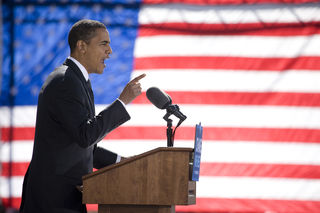The Power (and Peril) of Pride
For politicians, and the rest of us, pride can be a curse—or a source of strength.
By Emily Silber published September 5, 2016 - last reviewed on December 19, 2016

Joseph Sohm / Shutterstock.com
Pride has a pretty negative reputation: After all, it’s one of the seven deadly sins. But a closer look reveals that it can also be a source of human achievement, according to Jessica Tracy, head of the Emotion and Self Lab at the University of British Columbia. In her book Take Pride, Tracy explores the differences between what she calls “authentic” pride and “hubristic” pride, revealing how examples of both surface in politics and elsewhere.
Authentic pride is based on a positive but proportionate sense of one’s self-worth and engenders hard work and an inclination to do good. People who exhibit this form of pride, like the tycoon and philanthropist Warren Buffet, tend to be confident and prosocial. They gain the respect of their supporters and give credit where it’s due. President Obama, Tracy says, has tended to avoid arrogant speech and to acknowledge the role of others in his accomplishments. This brand of self-regard illustrates the positives of pride for the rest of us: It motivates us to achieve and can fill our lives with meaning. Experimental evidence supports the notion that the pride that results from a job well done encourages future success. “The more you feel authentic pride,” Tracy says, “the more you’re going to try to achieve.”
Hubristic pride is linked to grandiosity. People who indulge in it tend to be arrogant and narcissistic—traits some have attributed to authoritarian leaders like Vladimir Putin, as well as controversial icons like Steve Jobs. Such leaders gain power in part by exuding confidence and bullying others. “People are drawn to this display of pride, and they are afraid of it,” Tracy says. “They want an intimidating leader who is going to intimidate the right people.” This pride may not result from hard work and good intentions so much as from “egotistically basking in others’ positive reflections,” Tracy says. Despite its initial allure, hubristic pride is toxic: It fosters aggression and “general jerkiness,” she says, both of which can be huge turn-offs. All of us should beware of hubristic pride creeping in; otherwise, success may come at the cost of being liked.
